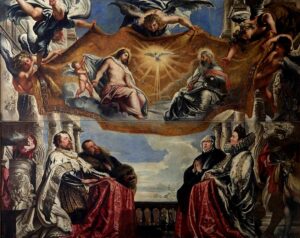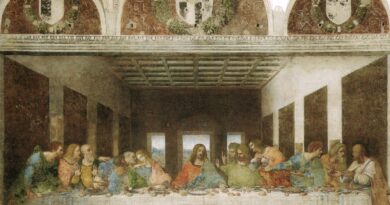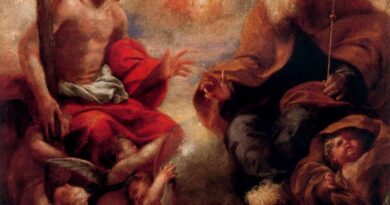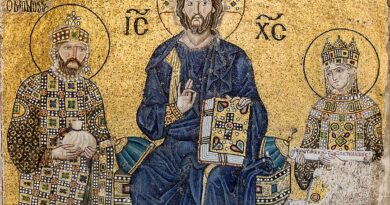Solemnity of the Most Holy Trinity/C
Massimo Palombella

The first texts of today’s Celebration were written by Alcuin of York (732-804), and these texts, with the exception of the Epistle, the Gospel and other minor changes introduced by Saint Pius V, remained in use until the liturgical reform of the Second Vatican Council (the texts of Alcuin of York can be found in PL 109, 455-446).
The celebration that the Second Vatican Council gave us, in the readings that we find in the three liturgical cycles, is a sort of great synthesis of our relationship with God, a grateful retrospective look at what we celebrated at Christmas and Easter.
Today, by fixing our gaze on God’s being, we can understand the truth of our identity beyond all our difficulties, limitations. We exist to be in relationship, and the essence of our life is to love and be loved. Today, then, let us make a living memory, let us celebrate the gift of the Father’s love, life in the Spirit, reconciliation with God, the condition of children of God and coheirs of the glory of the risen Christ.
The entrance antiphon, the Introit, of today’s celebration is taken from the Book of Tobias (Tob 12:6) with the following text:
Benedicta sit sancta Trinitas, atque indivisa Unitas:
confitebimur ei, quia fecit nobiscum misericordiam suam.
(Blessed be the Holy Trinity and its undivided Unity;
we shall ever give him thanks, for he has dealt with us according to his mercy).
The attached music is by Giovanni Pierluigi da Palestrina, from the first book of Motets for 4 voices published in Venice in 1571 (Motecta Festorum totius anni cum Communi Sanctorum. Quaternis Vocibus. Liber Primus [Venetiis, apud filios Antonii Gardani 1571]). The live performance is by the Musical Chapel of the Duomo of Milan at the Chapter Celebration on 26 May 2024.
A blessed Sunday and heartfelt greetings.
Private File - Access Forbidden

